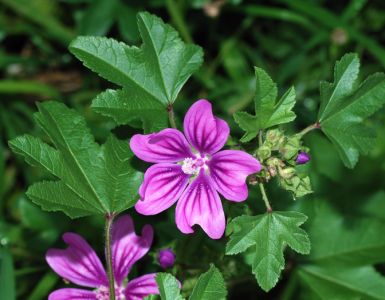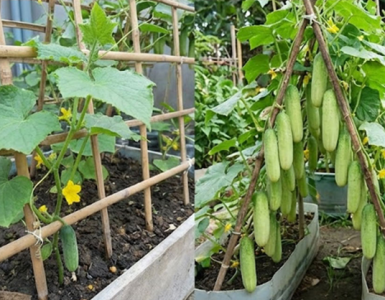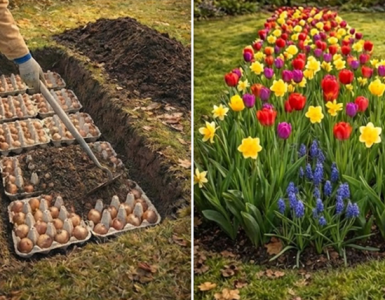Gardening enthusiasts are always on the lookout for innovative methods to enhance soil fertility and promote plant growth. Surprisingly, one of the most effective yet overlooked techniques involves a simple household item: eggs. Yes, you read that right – burying an egg in your garden soil can yield remarkable results that might just leave you astonished. In this article, we delve into the science behind this age-old practice and uncover the surprising outcomes awaiting those who give it a try.
The Science Behind Egg Fertilization:
Eggs are not just a nutritious breakfast staple; they also contain essential nutrients beneficial for plant growth. When an egg is buried in the soil, it gradually decomposes, releasing valuable nutrients such as calcium, potassium, phosphorus, and nitrogen. These nutrients are vital for plant development, supporting processes like photosynthesis, root growth, and overall health.
The calcium from the eggshell helps to regulate soil pH levels, ensuring optimal conditions for plant uptake of nutrients. Additionally, phosphorus aids in root development and flower formation, while nitrogen promotes lush green foliage. Potassium, on the other hand, plays a crucial role in strengthening plants against diseases and environmental stressors.
The Process:
To harness the benefits of egg fertilization, follow these simple steps:
Dig a small hole in your garden soil, preferably near the root zone of your plants.
Gently place a whole, uncooked egg into the hole.
Cover the egg with soil, ensuring it is fully submerged.
Water the area lightly to encourage decomposition.
It’s important to note that while burying whole eggs is effective, crushed eggshells can also be utilized to provide a slow-release source of calcium for your plants.
The Results:
Now comes the exciting part – observing the transformation in your garden after implementing this technique. Within a few days to weeks, you’ll notice significant improvements in plant vitality and growth. Leaves may appear greener and more robust, flowers might bloom more abundantly, and overall plant vigor will be enhanced.
Furthermore, plants treated with egg fertilization tend to exhibit greater resilience to environmental stressors such as drought, heat, and pests. This is attributed to the balanced nutrient supply and improved soil structure resulting from the decomposition of the egg.
Beyond the immediate benefits to your garden, egg fertilization also offers a sustainable and eco-friendly approach to soil enrichment. By utilizing a household waste product, you reduce the need for chemical fertilizers and minimize environmental impact.
Incorporating eggs into your gardening routine may seem unconventional at first, but the results speak for themselves. The nutrients released during egg decomposition provide a natural and effective way to nourish your plants, resulting in healthier, more vibrant gardens. So, the next time you crack open an egg for breakfast, remember that its benefits extend far beyond the kitchen – bury it in your garden soil and prepare to be amazed by the remarkable transformation that follows.






Add comment